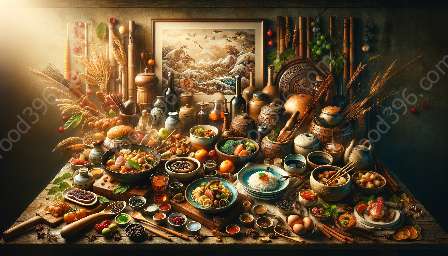Contemporary gastronomy has been significantly influenced by the emergence and evolution of fusion cuisine. The blending of culinary traditions from different cultures has created a unique and diverse culinary landscape that continues to captivate food enthusiasts worldwide. To understand the place of fusion cuisine in contemporary gastronomy, it is essential to delve into its history and its relationship with traditional cuisine.
The History of Fusion Cuisine
Fusion cuisine, often referred to as the blending of culinary traditions from different countries or regions, has a rich and diverse history. The concept of fusing different culinary traditions can be traced back to ancient times, with historical evidence of cultural exchange and the integration of culinary practices from various societies. It reflects the global interconnectedness of human civilizations throughout history.
The Silk Road, for instance, played a pivotal role in facilitating the exchange of goods, including spices, ingredients, and cooking techniques, between the East and the West. This cross-cultural interaction resulted in the fusion of diverse culinary traditions, leading to the creation of unique dishes that incorporated a mix of flavors, spices, and cooking methods from different regions.
Furthermore, the Age of Exploration and colonialism significantly impacted the evolution of fusion cuisine. European explorers and traders introduced new ingredients and cooking techniques to different parts of the world, influencing the local cuisines and contributing to the development of fusion dishes.
In recent history, the term 'fusion cuisine' gained widespread recognition, particularly in the 1970s and 1980s, as renowned chefs and culinary innovators began to experiment with blending diverse culinary traditions in their creations. This experimentation marked a turning point in the culinary world, leading to a new era of creativity and innovation in gastronomy.
Contemporary Gastronomy and Fusion Cuisine
In the contemporary culinary landscape, fusion cuisine has secured a significant place, offering an exciting and diverse array of culinary experiences. The fusion of different culinary traditions has not only enriched the global gastronomic scene but also transformed the way people perceive and appreciate food.
One of the remarkable aspects of fusion cuisine is its ability to break down cultural barriers and foster a sense of unity and understanding among diverse communities. By blending traditional ingredients, flavors, and cooking techniques from various cultures, fusion cuisine celebrates cultural diversity and promotes cross-cultural appreciation.
Moreover, fusion cuisine has influenced the way restaurants and culinary professionals approach menu creation and food presentation. Chefs are continuously pushing the boundaries of culinary innovation by combining unexpected flavors and creating fusion dishes that tantalize the taste buds and ignite culinary curiosity.
Contemporary gastronomy's embrace of fusion cuisine has also led to the popularization of fusion food festivals and culinary events, where food enthusiasts can immerse themselves in the eclectic and vibrant world of fusion flavors, aromas, and textures.
The Relationship with Traditional Cuisine
While fusion cuisine has made significant strides in contemporary gastronomy, its relationship with traditional cuisine remains integral to its evolution. Traditional cuisines serve as the foundation upon which fusion cuisine builds its innovative creations. By paying homage to traditional ingredients and culinary techniques, fusion cuisine preserves the authenticity and cultural significance of diverse culinary heritages.
Furthermore, the fusion of traditional and modern elements in culinary creations reflects the dynamic nature of food culture, emphasizing the importance of preserving culinary traditions while embracing innovation and creativity. This harmonious blend of tradition and innovation is a testament to the enduring legacy of traditional cuisines in the ever-evolving world of gastronomy.
Conclusion
In conclusion, fusion cuisine occupies a prominent place in contemporary gastronomy, serving as a testament to the interconnectedness of global culinary traditions. Its rich history, rooted in cultural exchange and cross-cultural influences, has transformed the culinary landscape, offering diverse and innovative experiences to food enthusiasts worldwide. The harmonious relationship between fusion cuisine and traditional culinary practices highlights the dynamic nature of gastronomy, showcasing the seamless blend of tradition and innovation in the art of food preparation and consumption.

